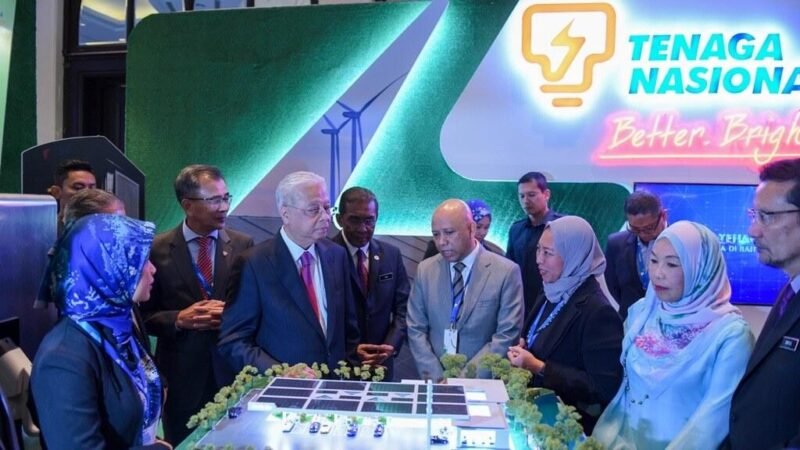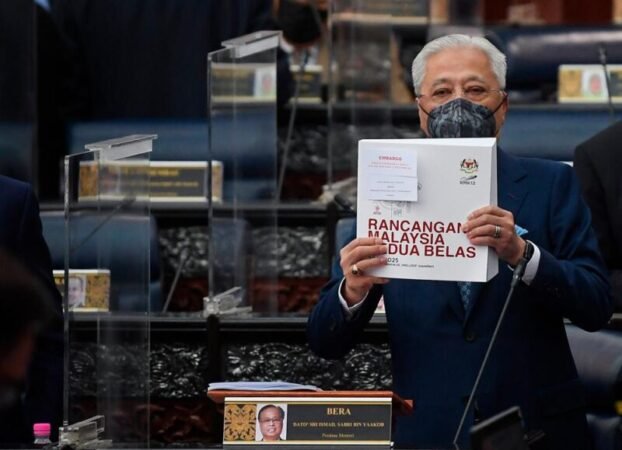Analysing the prospects and challenges in building energy-resilient Malaysia

Introduction
On the 19th of September 2022 the Prime Minister of Malaysia, Ismail Sabri Yaakob launched the National Energy Policy 2022-2040 (NEP). The policy lays down the vision for energy sustainability for the forthcoming 20 years. The policy aims to increase public transport usage, the use of electric vehicles, and the capacity of renewable energy. The NEP seeks to allay growing concerns about Malaysia’s energy requirements and places the nation on the path of energy resilience.
The authors argue in this piece that, in addition to the recently launched energy policy, there are a plethora of steps that should be taken to ensure a more energy-resilient Malaysia, particularly strategic partnerships in the field of energy.
An emerging crisis
Economic development in Malaysia necessitates a persistent demand for energy. This energy demand, coupled with diminishing indigenous energy supplies, has drawn the attention of Malaysian policymakers toward Malaysia’s energy supply security and the relevant players in the energy sector. Malaysia is well-equipped with both non-renewable and renewable energy sources. Malaysia holds the world’s 14th largest natural gas reserve and the 27th largest crude oil reserve. However, despite holding these resources, Malaysia’s energy security is a growing concern.
There has been an increase in energy demand, which can be traced to robust economic development, an expanding population, and increasing private spending. Therefore, it is beyond doubt that Malaysia’s energy consumption is headed on an upward trajectory and is constantly growing. In addition, the energy supply is not keeping up with the energy demand. The diminishing energy supplies have further catalysed the emerging energy crisis in Malaysia.
The Malaysian energy security issue is two-pronged. The issues are first, an over-dependence on fossil fuels and, second, a growing dependence on energy imports; both pose a threat to the country’s future growth.
The authors opine that the energy-security issue can be mitigated by the timely implantation of the 11th Malaysian plan, alongside the NEP, and with the assistance of strategic partnerships in the energy sector. The same has been explained in subsequent sections.

Implementation of the 11th Malaysia Plan and the NEP
Malaysia’s current energy production and consumption patterns indicate that it has a surplus buffer that will last merely a few years. It is, therefore, clear that Malaysia requires more investment, research, and development of its power industry to fulfil its increasing energy demand.
Understanding what the future of energy security looks like in Malaysia is imperative. Arguably, the implementation of the 11th Malaysia’s plan by 2020 would have placed the country firmly on the path of energy resilience. However, several measures described in the plan are likely to take longer to execute than anticipated. Goals such as rural electrification and the use of cleaner fuel in transportation are likely to take more time for their implementation than previously anticipated. Nevertheless, the mere fact that all the plans in the 11th plan cannot be implemented does not imply that efforts cannot be taken towards a more energy-secure Malaysia. There are a plethora of initiatives within the 11th plan that can be implemented with immediate effect and thereby boost Malaysia’s energy security.
At this juncture, it is important to address certain questions. It is important to determine whether the 11th Malaysia plan is still appropriate and whether the plan from 1990 requires modifications to suit the present needs. Moreover, it is also to be understood how the recently accepted NEP would be implemented in harmony with the existing 11th plan.
The authors opine that a revaluation of the 11th plan and its efficacy in attaining energy security must be carried out. The 11th plan, being a development plan formulated in 1990, requires requisite changes to suit the current times and needs. Further, in light of the previously accepted 11th plan, the launch of the NEP poses two pertinent questions. First, while many of the goals discussed in the two policy initiatives are similar and in harmony with one another, certain additions have been made to the NEP, when compared with the 11th plan.
Given that the NEP has been implemented recently, logically, it would prevail over the goals laid down in the 11th plan, accepted in 1990. However, the same needs to be affirmed by the relevant authorities.
For these reasons, a re-evaluation of the 11th Malaysia plan is required. It would help in understanding certain questions like, whether the goals laid out in the 11th plan are still relevant now, or whether, with the change in time, they are to be modified?
Third, the political will of Malaysian policymakers in this regard holds a significant value. While there is sufficient evidence to indicate a will towards creating a more energy-resilient nation, the same must persist for the forthcoming years. Although, the government’s current focus on finding solutions for the mitigation of energy security challenges in Malaysia is appreciable. It is yet to be seen whether the same would sustain in the long run.

Strategic Alternatives to attaining energy-security
Malaysia can also explore various strategic options before it, for attaining energy security. Strategic partnerships for achieving sustainable energy development would assist the nation in a two-fold manner. First, strategic partnerships would increase energy security, by increasing energy supply in the nation. And second, such partnerships would assist in initiating further advanced strategic partnerships with nations, in the domains of commerce, military etc.
While entering strategic energy partnerships, Malaysia must be aware of its needs and must be focused on the following three requirements in particular.
First, Malaysia must persistently look for diversifying its energy supply sources. That is, Malaysia must not rely only on a particular energy source. It must focus on accelerating the development of domestic gas and water resources, obtaining additional gas from foreign sources, improving and extending supply infrastructures to promote regional interconnectivity, and investigating and expanding nuclear possibilities. The government must focus on the diversification of energy sources, and growth of the power sector, and emphasise the need to include renewable energy sources and other low-carbon emitting sources, for example, nuclear power, in the national energy mix.
Second, there must be a focus on reducing the nation’s carbon footprint. Through the development of centralised renewable energy, research into low-carbon electricity, such as carbon capture and storage systems in coal-fired power plants, and the usage of alternative fuels and cleaner energy sources in the transportation sector.
Third, the focus must be placed on low-carbon-based, energy-efficient growth. Enhancing energy efficiency in the residential and commercial sectors, reducing demand for personalised modes of transportation and increasing the share of public transportation, planned public transportation schemes, promoting cogeneration in industrial facilities, and addressing energy inefficiency in Small and Medium Enterprises are all examples of ways to improve Energy Efficiency.
Further, there must be a focus on developing low-carbon industries, facilities and services to boost economic growth. Manufacturing high-energy-efficiency products, marketing energy-efficiency products such as LED lighting, and establishing new energy businesses are all things that can be done.



















